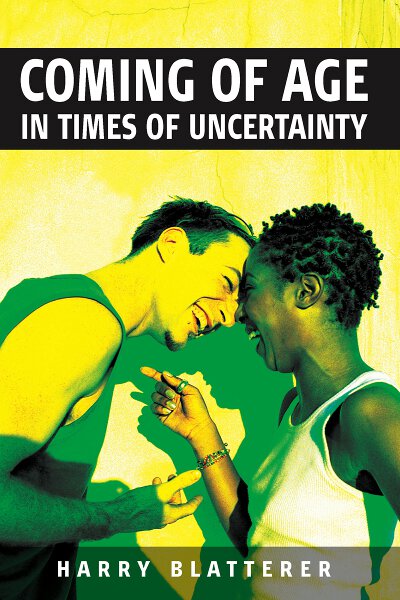
See Related
Anthropology JournalsEmail Newsletters
Sign up for our email newsletters to get customized updates on new Berghahn publications.
Coming of Age in Times of Uncertainty
Harry Blatterer
Preface by Peter Beilharz
160 pages, bibliog., index
ISBN 978-1-84545-285-8 $135.00/£104.00 / Hb / Published (December 2007)
ISBN 978-1-84545-628-3 $24.95/£19.95 / Pb / Published (July 2009)
eISBN 978-0-85745-531-4 eBook
Reviews
“…this book will be useful for scholars and students who want to explore and grasp the meaning of being an adult today. What is especially interesting is how the author expounds his main premise. Blatterer’s arguments are grounded on the work of traditional sociology theorists (e.g. Durkheim, Weber), and he also critically explores theories of individualization, the life course, and biography of modernity (e.g. Bauman, Beck, Giddens, Honneth).Within this theoretical framework, the author engages in a discussion of emerging social trends and compares them to the traditional and normative model that precedes them.” · Sociology
“[This book] constitutes a novel and sophisticated approach to the study of age in and beyond the Western context primarily analysed by Blatterer… [and] will appeal not only to scholars interested in age studies, but also to a wider readership, in and beyond academia, with an interest in understanding the ways in which neoliberal transformations affect and impinge on the life of people in novel and unprecedented ways…this book is a timely and informed addition to an emerging critical scholarship of neoliberalism.” · JRAI
"Impatient with popular and academic hand-wringing over 'prolonged adolescence' (or young people's unwillingness to grow up), Blatterer in this overdue sociological treatise on the changing nature of adulthood in Western society counters that such judgments unfairly draw on obsolete norms of adulthood… Blatterer's writing is eloquent…his arguments are well considered, important, and thought-provoking." · Choice
Description
Adulthood is taken for granted. It connotes the end of childhood, the resolution to the “storm and stress” period of adolescence. This conception is strongly entrenched in the sociology of youth and the sociology of the life course as well as in the policy arena. At the same time, adulthood itself remains unarticulated; journey’s end remains conceptually fixed and theoretically uncontested. Adulthood, then, is both central to the social imagination and neglected as an area of sociological investigation, something that has been noted by sociologists over the last four decades. Going beyond the overwhelmingly psychological literature, this book draws on original qualitative research and theories of social recognition and thus presents a first step towards filling an important gap in our understanding of the meaning of adulthood.
Harry Blatterer is Lecturer in Sociology at Macquarie University where he teaches introductory sociology, social theory and courses on the life course, generations and intimacy.



